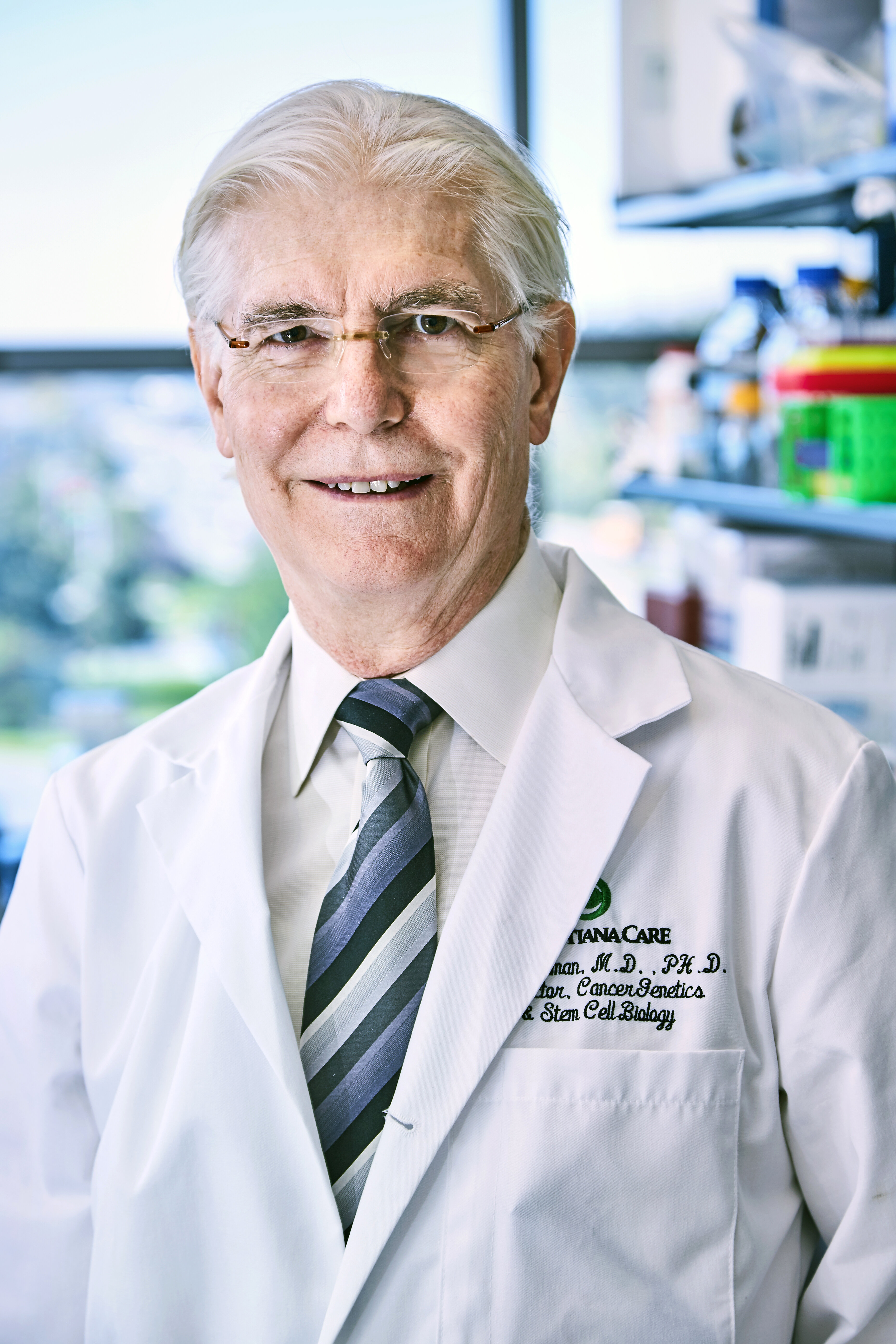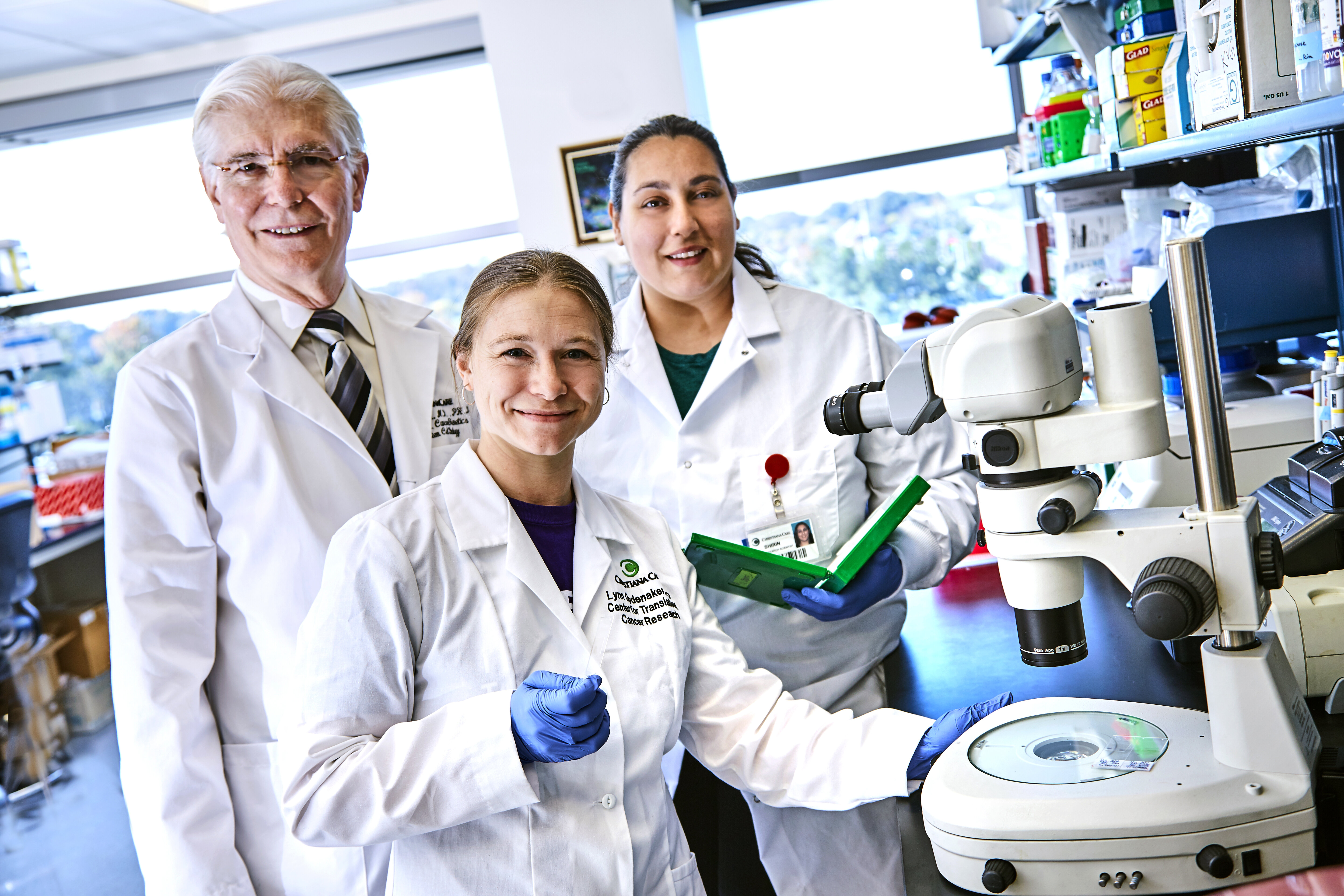$900K grant will advance stem cell research at the Helen F. Graham Cancer Center & Research Institute
February 1, 2019
Wilmington, Delaware, Jan. 31, 2019 — Senior Research Scientist Bruce Boman, M.D., Ph.D., MSPH, FACP, at the Helen F. Graham Cancer Center & Research Institute of Christiana Care Health System, has received a $916,577 grant award from the Lisa Dean Moseley Foundation to further stem cell research into the origins of colon cancer.
The three-year grant will enable Dr. Boman and his team at the Center for Translational Cancer Research (CTCR) at Christiana Care to continue building on their innovative discovery that stem cell overpopulation is the mechanism that drives cancer development and growth in the colon. This knowledge could ultimately aid in developing targeted and more effective cancer treatment strategies.
“While we know that stem cell overpopulation drives colon tumor development,” Dr. Boman explained, “but we don’t completely understand which dysregulated mechanisms cause the overpopulation.”
Support from the Lisa Dean Moseley Foundation will allow further investigation into the understanding of which dysregulated cellular mechanisms cause the stem cell overpopulation.
“Partnership with Dr. Boman and his team at the Center for Translational Cancer Research holds great promise for a better understanding of how stem cells play a role in the cancer development,” said William J. Martin, the secretary-treasurer of the Moseley Foundation. “This work is directly in line with the Foundation’s mission to support stem cell research and promises to accelerate scientific progress toward better cancer treatments.”

Photo By Christiana Care
Dr. Boman’s team will take a multidisciplinary approach drawn from tumor biology, cancer genetics, pathology, medical oncology and molecular biology to discover how stem cells are regulated in the normal healthy colon and how gene mutations contribute to stem cell overpopulation in tumors. Specifically, they will study how inactivation of the adenomatous polyposis coli (APC) tumor suppressor gene leads to stem cell overpopulation that drives colon cancer development and growth.
Earlier this year Dr. Boman published findings that the retinoic acid signaling pathway acts to induce differentiation of colon cancer stem cells and reduce cancer stem cell overpopulation. Dr. Boman’s findings suggest that treatment with retinoid drugs, which are derived from vitamin A, could provide a therapeutic strategy to selectively target cancer stem cells and decrease the number of highly resistant cancer cells.
“Findings from our proposed research project should provide a rationale to ultimately test glucagon-like peptide agonists as targeted anti-cancer stem cell therapeutics in human clinical oncology trials,” Dr. Boman said.
“The Moseley Foundation’s multi-year grant will spur the momentum of our cancer research program with support for a key research group investigating cancer stem cells,” said Nicholas J. Petrelli, M.D., Bank of America endowed medical director of the Helen F. Graham Cancer Center & Research Institute. “As Delaware’s leader in cancer treatment, genetics and clinical trials, we continue to seek opportunities to integrate basic cancer research into clinical practice that ultimately translates into advanced treatment for our patients.”
Colorectal cancer is the second leading cause of cancer related deaths in cancer-relatedtes, equally affecting both men and women. Each year there are 130,000 new cases in the United States, and 40 percent of those affected will die from their disease.
Conventional research over the last 50 years has been that tumors undergo a series of genetic mutations that lead to the unchecked growth of tumors and their progression to metastatic cancer. Traditional therapies designed to kill the bulk of cancer tumor cells continue to fall short of a cure for advanced, drug resistant colon cancers.
“Our thinking has shifted to the insight that cancers originate in tissue stem cells through dysregulation or malfunction of the self-renewal process and that cancer stem cells drive tumor growth,” said Dr. Boman. “It follows that the optimal way to treat cancer (especially advanced cancer) is to eliminate cancer stem cells.”

Photo By Christiana Care
About the Center for Translational Cancer Research
The Center for Translational Cancer Research (CTCR) at the Helen F. Graham Cancer Center & Research Institute moves research from the laboratory bench to the patient’s bedside by applying basic science toward potential therapies. The CTCR is where scientists study the molecular causes of cancer, tissue engineering and gene editing, all targeted to better treatment for patients. Groundbreaking findings and current studies at the center are helping to prevent, better detect and stop the growth of many cancers — and as a result reducing cancer incidence and mortality rates in Delaware.
The Helen F. Graham Cancer Center & Research Institute, a National Cancer Institute Community Oncology Research Program, is part of the Christiana Care Health System, one of the country’s most dynamic health systems, ranking as the 24th leading hospital in the nation in terms of patient admissions. With more than 232,000 patient visits last year, the Graham Cancer Center is recognized as a national model for multidisciplinary cancer care and a top enroller in U.S. clinical research trials. In conjunction with the CTCR, the Tissue Procurement Center, Gene Editing Institute, statewide High-Risk Family Cancer Registry and collaborations with world-renowned scientists at facilities such as The Wistar Institute in Philadelphia, scientists are opening new avenues to more quickly translate cancer science into cancer medicine. For more information, visit www.christianacare.org/cancer.
About the Lisa Dean Moseley Foundation
The primary mission of the Lisa Dean Moseley Foundation is to encourage, promote and support medical research focused on the study of stem cells. The Foundation accomplishes these goals by partnering with ongoing research and clinical programs undertaken by universities, clinics and other qualified medical research organizations. The Foundation is based in Wilmington, Delaware, and was founded by the late Lisa Dean Moseley, an advocate of medical stem cell research.

